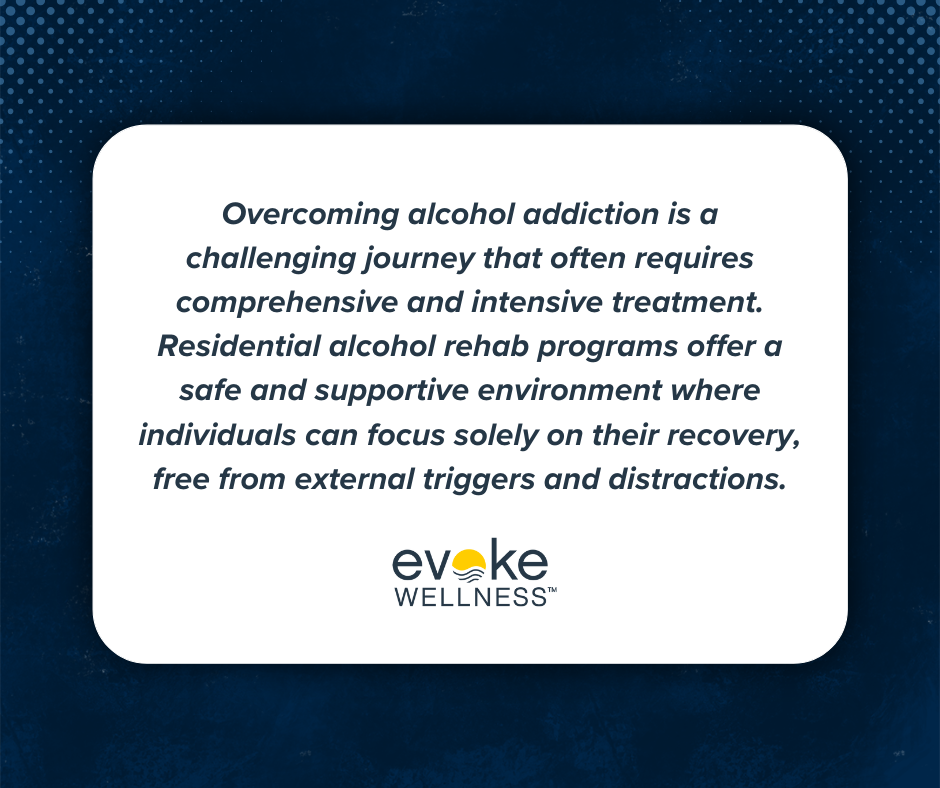Navigating the path to recovery from alcohol addiction can be overwhelming. As you consider treatment options, understanding the difference between alcohol detox and alcohol rehab is crucial. In Massachusetts, where 5.3% of adults reported heavy drinking in 2021, seeking proper care is paramount. This article will guide you through the distinct yet complementary processes of acute detox and comprehensive rehabilitation. You’ll learn about drug and alcohol detox facilities, residential treatment programs, and various therapy options available. By the end, you’ll have a clearer picture of how these components work together to support your journey towards sobriety and long-term recovery.
Together, let’s embrace the journey to recovery and the promise of a new beginning. Call us at (617) 917-3485 today or reach out online.
Understanding Alcohol Addiction
The Widespread Issue
Alcohol addiction is a pervasive and complex issue affecting millions worldwide. As per Evoke Wellness, recognizing key signs like increased tolerance, withdrawal symptoms, and continued use despite negative consequences is crucial. Alcohol abuse can severely impact physical and mental health, from liver damage to increased chronic disease risk.
A Comprehensive Approach
Overcoming alcohol addiction requires a multifaceted treatment approach. According to Evoke Wellness, this includes medical detox, residential care, therapy, and ongoing support. Evidence-based therapies like cognitive-behavioral therapy (CBT) and dialectical behavior therapy (DBT) are often employed.
Specialized Care Options
Evoke Wellness at Cohasset offers tailored programs for specific populations, such as veterans and LGBTQ+ individuals. Dual diagnosis treatment addresses co-occurring mental health conditions like anxiety or depression. Medication-assisted treatment (MAT) with medications like Suboxone and Vivitrol can aid recovery.
A Path to Lasting Recovery
The overarching goal is to build a robust foundation for long-term sobriety and improved well-being. Evoke emphasizes embracing a healthier lifestyle through balanced nutrition, exercise, mindfulness, positive social support, and effective stress management techniques during early recovery.
What Happens During Alcohol Detox?
The Withdrawal Process
Alcohol detox involves the process of purging alcohol from the body and managing potentially dangerous withdrawal symptoms. As alcohol leaves the system, the brain’s chemistry is disrupted, triggering various physical and psychological effects. Common withdrawal symptoms include nausea, sweating, tremors, anxiety, and insomnia. In severe cases, individuals may experience seizures or delirium tremens, which can be life-threatening without medical supervision. According to the National Institute on Alcohol Abuse and Alcoholism, withdrawal typically begins within 6-24 hours after the last drink and can persist for several days or weeks.
Medically Supervised Detox
At Evoke Wellness, alcohol detox is conducted under 24/7 medical monitoring in a safe, comfortable environment. The process involves a comprehensive evaluation to determine the appropriate level of care and medications needed to alleviate withdrawal symptoms. Benzodiazepines like Librium or Valium are commonly prescribed to manage anxiety, tremors, and seizure risk. As noted by the Substance Abuse and Mental Health Services Administration, medication-assisted treatment can significantly improve detox outcomes and reduce complications. Evoke’s team also provides nutritious meals, hydration therapy, and counseling support during this crucial first stage of recovery.
Transitioning to Ongoing Treatment
While detox addresses the physical dependence on alcohol, comprehensive treatment is necessary to achieve long-term sobriety, according to addiction experts. After stabilization, clients at Evoke Wellness transition into the appropriate level of care, which may include residential treatment, intensive outpatient programs, or other evidence-based therapies. These programs address the psychological, social, and behavioral aspects of addiction through individual and group counseling, relapse prevention strategies, and support for developing a sober lifestyle.
Alcohol detox is a challenging yet vital first step on the path to recovery. With proper medical supervision and a seamless transition to ongoing treatment, individuals can overcome the cycle of addiction and build a foundation for lasting sobriety and improved well-being.
Residential Alcohol Rehab Programs
Holistic Approach
Reputable residential rehab centers in Massachusetts employ a holistic approach to address the physical, mental, and emotional aspects of alcohol addiction. This multidisciplinary approach combines evidence-based therapies, such as cognitive-behavioral therapy, individual and group counseling, and medication-assisted treatment, to help individuals develop coping mechanisms and achieve long-term sobriety.
Structured Environment
One of the key advantages of residential rehab programs is the structured environment they provide. Residents follow a structured daily schedule that includes various therapeutic activities, educational sessions, and recreational pursuits. This routine helps establish healthy habits and provides a sense of stability and accountability, which can be invaluable during the early stages of recovery.
Peer Support
Residential rehab programs foster a strong sense of community and peer support. Residents have the opportunity to connect with others who are on similar journeys, sharing their experiences and supporting one another through the challenges of recovery. This supportive environment can be particularly beneficial for individuals from the LGBTQ community, who may face unique challenges and stigma, by providing a safe and inclusive space for healing.
Aftercare Planning
Successful residential rehab programs recognize that recovery is an ongoing process that extends beyond the initial treatment phase. As such, they provide comprehensive aftercare planning and support to help individuals transition back into their daily lives while maintaining sobriety. This may include outpatient therapy, sober living arrangements, and access to support groups and resources.
By immersing individuals in a comprehensive and supportive environment, residential alcohol rehab programs in Massachusetts aim to equip them with the tools and resources necessary to achieve lasting recovery and reclaim their lives from the grip of alcohol addiction.
Therapy and Counseling in Alcohol Rehab
Comprehensive Support for Recovery
Effective alcohol rehab programs recognize that addiction is a complex issue requiring a multi-faceted approach. At the core of many successful treatment plans are evidence-based therapy and counseling services, designed to address the underlying psychological and emotional factors contributing to alcohol abuse. According to Stanford’s Human-Centered AI group, increasing access to mental health resources like therapy can significantly improve addiction recovery outcomes.
Personalized Therapeutic Approaches
- Cognitive-Behavioral Therapy (CBT): This widely-used modality helps individuals identify and change negative thought patterns and behaviors that perpetuate alcohol addiction. CBT equips clients with coping strategies to manage cravings and high-risk situations.
- Dialectical Behavior Therapy (DBT): By teaching mindfulness, emotional regulation, and interpersonal effectiveness skills, DBT empowers clients to build a life worth staying sober for.
- Individual Counseling: One-on-one sessions with licensed therapists provide a safe, judgment-free space to explore personal challenges, set recovery goals, and develop relapse prevention plans.
The Power of Group Support
Group therapy is a vital component of alcohol rehab, fostering a sense of community and accountability. In these sessions, facilitated by trained counselors, clients share experiences, learn from others’ journeys, and practice communication and social skills essential for lasting sobriety. Group settings can significantly enhance treatment outcomes, as participants realize they are not alone in their struggles.
Holistic Healing for Mind and Body
Many top alcohol rehab centers incorporate holistic therapies alongside traditional counseling approaches. Activities like yoga, meditation, art therapy, and outdoor adventures promote mindfulness, stress relief, and overall well-being – key factors in preventing relapse. These complementary practices help clients develop healthy coping mechanisms and rediscover joy in living a sober lifestyle.
With a range of therapy and counseling options tailored to each individual’s needs, alcohol rehab gives clients the tools to break free from addiction and build a foundation for lifelong recovery. The journey is challenging but achievable with the right support system in place.
The Difference Between Alcohol Detox and Alcohol Rehab
Alcohol Detox: Breaking Physical Dependence
Alcohol detox is the crucial first step in overcoming alcohol addiction. This process aims to safely manage the withdrawal symptoms that arise when someone stops drinking after prolonged, heavy alcohol use. During detox, individuals are often monitored closely in a medically supervised setting to minimize risks and discomfort associated with acute withdrawal effects.
Detox helps cleanse the body of alcohol’s toxins and break the physical dependence. However, it alone is not a cure for addiction – it merely sets the stage for further treatment and rehabilitation.
Alcohol Rehab: Addressing Root Causes
Alcohol rehab programs focus on the psychological and behavioral aspects of addiction. Through various therapies, counseling, and support services, these programs help individuals:
- Understand and address the underlying causes of their alcohol abuse
- Develop essential coping mechanisms and life skills
- Build a strong foundation for sustained sobriety and relapse prevention
Rehab programs may be inpatient (residential) or outpatient, allowing flexibility based on individual needs and circumstances. Effective treatment typically incorporates evidence-based approaches like cognitive-behavioral therapy, group sessions, family involvement, and personalized aftercare planning.
A Comprehensive Approach
While detox manages the immediate physical dependence, rehab tackles the deeper psychological and social factors contributing to alcohol addiction. Research shows that a comprehensive approach combining both detox and rehab significantly improves the chances of achieving long-term recovery.
At Evoke Wellness at Cohasset, our addiction treatment specialists understand the complexities of alcohol addiction. We offer medically supervised detox services and structured rehab programs tailored to each individual’s unique needs and goals. Our holistic approach aims to promote healing in body, mind, and spirit – empowering clients to rebuild their lives free from the grip of alcohol addiction.
Frequently Asked Questions About Alcohol Detox and Rehab
Alcohol Detox: A Crucial First Step
Safely eliminating alcohol from the body is a critical first step in the recovery process. Alcohol detox programs in Massachusetts provide 24/7 medical supervision and use medications like benzodiazepines to manage potentially life-threatening withdrawal symptoms. This ensures a safe and comfortable detox experience.
At Evoke Wellness at Cohasset, our detox program is just the beginning. We transition clients into comprehensive alcohol abuse treatment programs that combine individual and group counseling to address the psychological roots of alcoholism.
Rehab: A Holistic Path to Recovery
While detox addresses physical dependence, residential alcohol rehab programs offer a more comprehensive approach. Our rehab program incorporates:
- Evidence-based therapies like cognitive-behavioral therapy
- Medication-assisted treatment to reduce cravings
- Relapse prevention strategies and support groups
- Aftercare planning for long-term sobriety maintenance
The goal is to equip clients with tools for lasting recovery by targeting the mental, emotional, and behavioral aspects of alcohol addiction.
Insurance Coverage for Treatment
Many insurance providers cover addiction treatment, from detox to residential rehab. Coverage varies, but Evoke Wellness can verify your benefits at no cost. For those without insurance, we offer self-pay options, payment plans, and partial scholarships to make treatment accessible.
The Need for Professional Help
In Massachusetts, alcohol abuse is a significant issue, with over 20% of adults engaging in binge drinking. Attempting to quit alone can be dangerous due to withdrawal risks. Our team at Evoke Wellness provides a safe, structured environment to overcome alcoholism and rebuild a sober life.
Conclusion
In conclusion, understanding the distinction between alcohol detox and rehab is crucial for those seeking recovery. While detox addresses the immediate physical dependence, rehab provides the comprehensive treatment necessary for long-term sobriety. Recent studies show that in Massachusetts, 26% of adults report excessive drinking, highlighting the urgent need for effective treatment options. Whether you require acute detox, drug and alcohol detox, residential treatment, or specific therapy programs, professional help is available. By recognizing the unique roles of detox and rehab in the recovery process, you can make informed decisions about your treatment journey and take the first step towards a healthier, alcohol-free life.
Begin Your Journey with Evoke Wellness at Cohasset
If you or a loved one is considering treatment, Evoke Wellness at Cohasset invites you to contact us. Our compassionate team is ready to answer your questions, discuss your needs, and help you take the first steps toward recovery. In Cohasset, you’ll find more than just a treatment program – you’ll discover a community dedicated to your wellness and success. Together, let’s embrace the journey to recovery and the promise of a new beginning. Call us at (617) 917-3485 today or reach out online.





